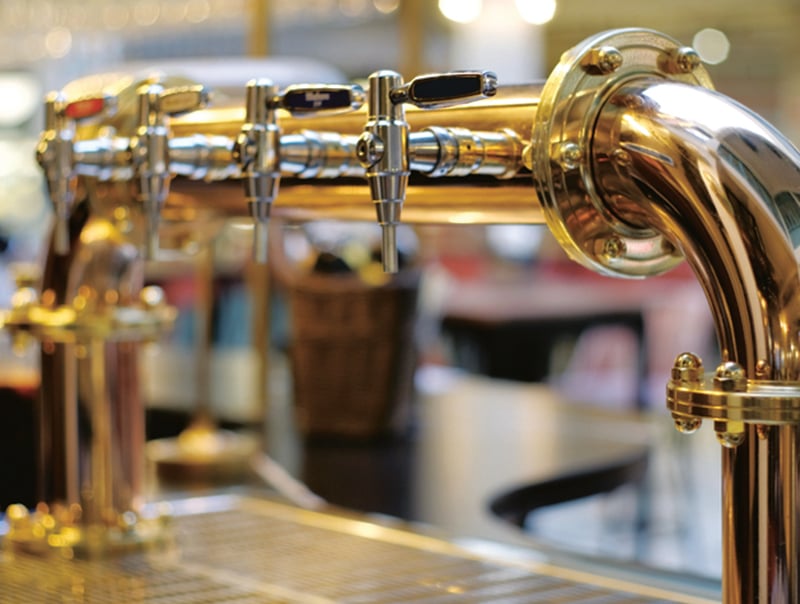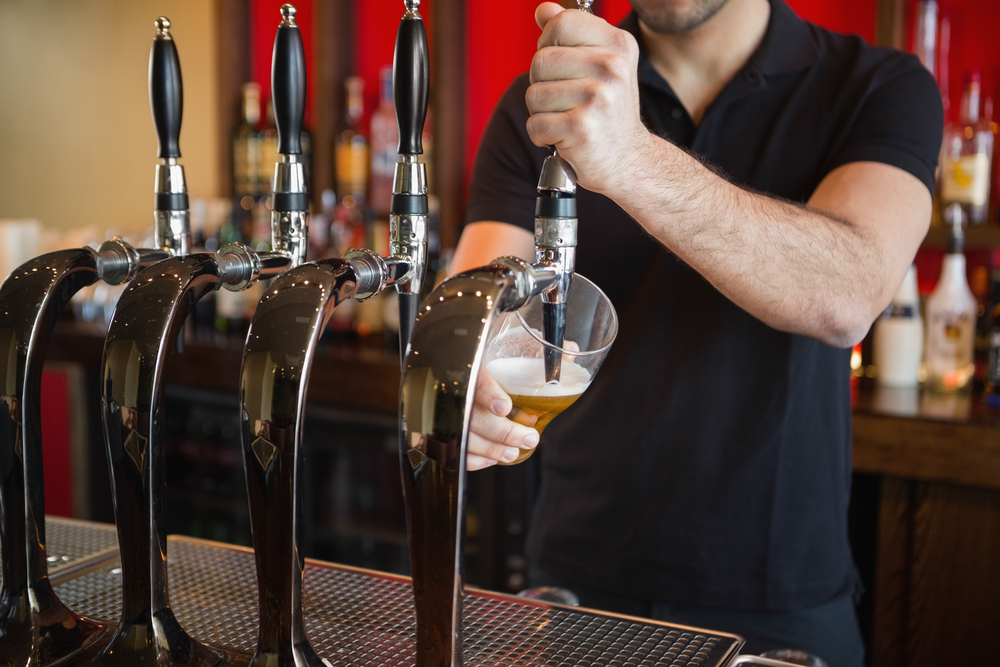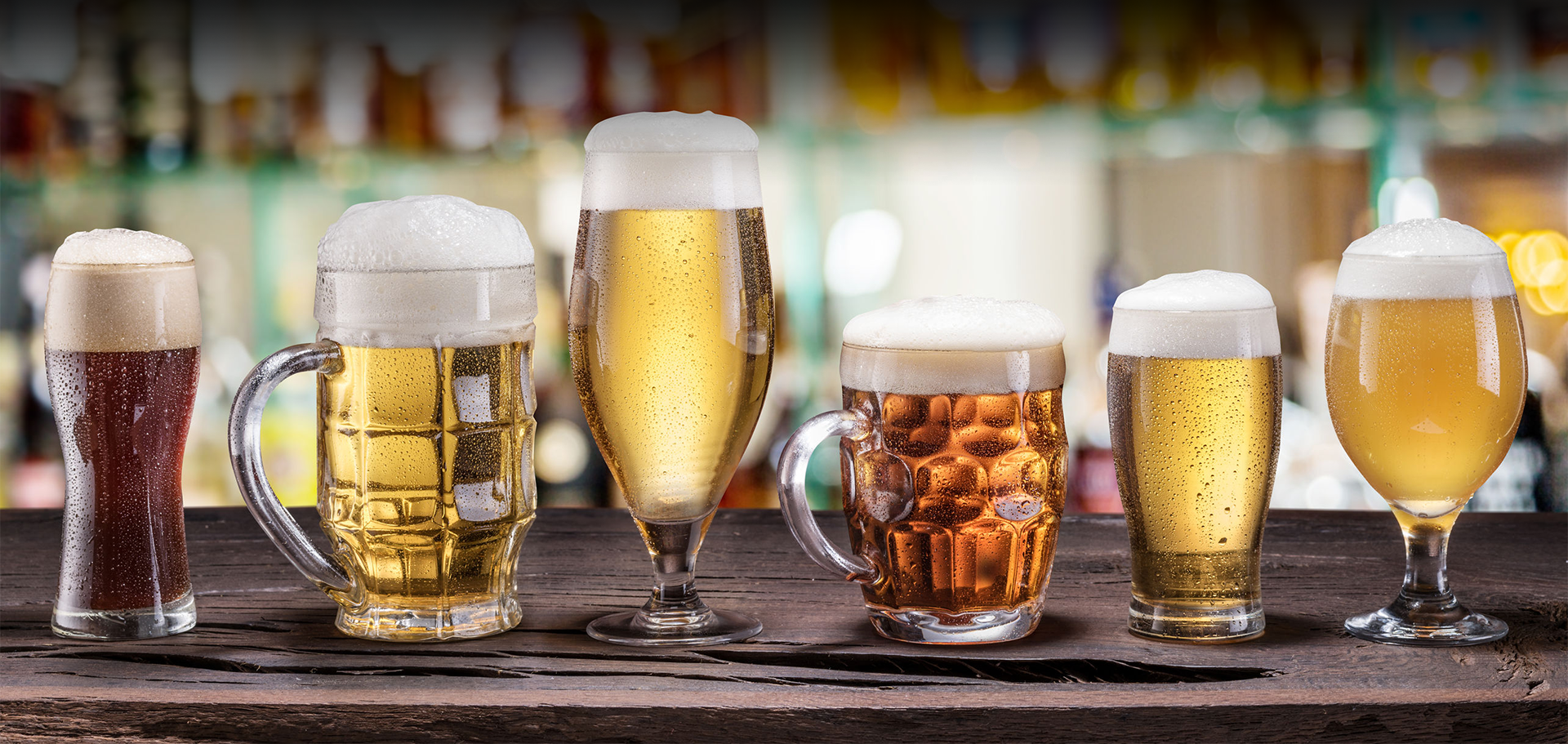With the nation’s demand for recreational marijuana on a steady incline and the national beer consumption rates down in recent years, some of those in the beer industry have begun exploring the world of cannabis-infused beer. Federally, THC and CBD are products of marijuana, a Schedule 1 Drug according to the Drug Enforcement Administration (DEA), and consequently, they may not be sold across state lines, even in states in which marijuana is legal.
Although recreational marijuana has strides to make before obtaining federal recognition, some beer manufacturers are taking advantage of the recreational marijuana infancy stage to develop cannabis-infused beers that are sure to break the market the minute it opens. For example, Molson Coors’ Canadian Unit has already begun its development of a cannabis-infused beverage: a nonalcoholic, THC-infused beer.
Because the United States is so green to the recreational marijuana world, the surrounding body of law is under-developed. This is especially true for products that contain both alcohol and cannabis-based properties, such as THC and CBD. Breweries that wish to participate in cannabis-infused brewing are subject to the Alcohol and Tobacco Tax and Trade Bureau (TTB) regulations.
The TTB precludes breweries from distributing cannabis-infused products because cannabis remains an illegal substance under federal law. However, manufacturers of nonalcoholic products are not bound by the TTB’s regulations and, as such, are not subject to its cannabis prohibition.
Keith Villa, a Denver local and the founder of Blue Moon Brewing Company, sought involvement in this emerging market and has begun creating a nonalcoholic craft beer infused with THC. His process differs, however, from other companies like Lagunitas Brewing Company.
Mr. Villa’s new company has developed a method in which he brews the beer, then removes the alcohol from the product, and simultaneously replaces the alcohol with THC. Even though the name of Mr. Villa’s new company, Ceria Brewing Co., suggests it is a beer manufacturer, Ceria does not actually sell alcoholic beverages.
Thus, Ceria is not obliged to adhere to the TTB regulations, allowing it to manufacture a nonalcoholic, THC-infused beer. Although companies such as Ceria are not expected to comply with TTB regulations, they must produce their cannabis-infused beverage in accordance with state cannabis regulations.
For traditional beer manufacturers who wish to participate in the creation of cannabis-infused beverages, there are two options. First, the company can produce a non-alcoholic beverage without the cannabis infusion and then outsource the product in its final stage.
This is the route Lagunitas Brewing Company chose for the creation of their Hi-Fi Hops beverage, soon to be released in dispensaries throughout California. Lagunitas creates a hoppy, nonalcoholic, sparkling water, then sends it to CannaCraft, who finalizes and then distributes the THC-infused beverage. This two-step production process allows Lagunitas to participate in the marijuana industry, while CannaCraft is the one adhering to the state cannabis regulations.
Thus, Lagunitas remains in compliance with applicable regulations. Jamie Evans, the founder of The Herb Somm, believes that one of the motivators behind Lagunitas’ early involvement in cannabis-infused beverages is that when cannabis becomes federally recognized, Lagunitas will already have a well-established name for itself. If federal recognition becomes a reality, Lagunitas will have the foundation necessary to transition right into the THC-beer market.
The second option for beer manufacturers is to complete the infusion process themselves; however, this option involves a greater level of government regulation. In 2016, Coalition Brewing Co. created their Two Flower IPA, an alcoholic beer containing CBD.
Although Coalition was tight-lipped on their methods, they made history in the world of cannabis infusions with Two Flower because they were able to create a CBD-infused, alcoholic beverage while apparently not running afoul of the TTB and state cannabis regulations. They appear to have discovered a way to legally incorporate CBD into alcoholic beverages and it is probably only a matter of time before others beverage companies follow suit.
Last year, Wine & Spirits Wholesalers of America (WSWA) made an unprecedented announcement among alcohol associations, coming out as the first to support the use of cannabis. WSWA believes that, as with alcohol, states should have the authority to regulate cannabis in order to promote safe consumption practices.
Although WSWA did not comment on the collective use of THC with alcoholic beverages, this was a milestone in the soon-to-be symbiotic market relationship between cannabis and alcohol.
WSWA understands the robust world of alcohol regulations and believes that the marijuana industry would benefit greatly from similar regulatory structures in order to prevent unregulated complications. Indeed, that appears to be the way the wind is blowing.
The Food and Drug Administration (FDA) recently moved the needle off of the total prohibition of cannabis products with the approval of EPIDIOLEX, a CBD-based medication for epilepsy. President Trump also recently declared that he will help aid Congress in efforts to legalize marijuana. Breweries that are preparing for this trend now may find themselves at the crest of a major wave if marijuana is, indeed, legalized nationwide.



.png)

